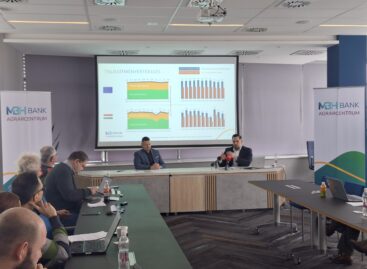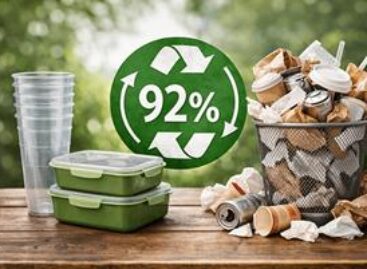E-invoicing gradually adopted by modern retail
According to estimates, electronic invoices have the potential to save EUR 5 for seller and EUR 20 for buyer on average in comparison with paper invoices. It is no wonder that the fifth conference held by ECR Magyarország about the topic on 6. May was a great success. – Our objective is to provide a forum for exchanging practical experience, to communicate the advantages of e-invoicing to executives and to provide advice – says Ferenc Balogh, secretary of ECR Magyarország. A conversation was recollected by José Maria Cervera, managing director of METRO Kereskedelmi Kft, which he once had with László Ránky, managing director of SCA Hygiene Products Kft. about delays in payment. They had decided to launch a pilot project in EDI to speed up payments which brought good results within a month. The first step is submitting and confirming orders by EDI. There is already a Hungarian retail chain where 70 percent of orders are submitted by EDI. A total of 50-100 million invoices are issued in Hungary every year, which means that an enormous amount of money could be saved by E-invoicing. However, work on the legal background for E-invoicing had only begun in Hungary in 2003 and ended in 2008. Today, E-invoices can be used in the same way as paper invoices. Szabolcs Czöndör from APEH KMRI, spoke about the things learned from inspections of e-invoicing activities. Experience has been positive so far. EDI processes and the place of E-invoices was the topic of the presentation held by László Csorba, supply chain director of METRO. They submit 80 percent of their orders electronically and it is their intention to get suppliers to issue at least 30 percent of their invoices electronically by the end of the year. This objective is hoped to be achieved the help of the GS1 standard and the GDSN system. Judit Győri from Metro spoke about specific schedules for projects and the things learned from these, while László Juhász from SCA Hygiene Products Kft. explained the details of such projects on the supplier’s side. Nikolett Németh from Spar Magyarország Kft. pointed out that they only accept normal invoices electronically. The test period lasts for two months. They are already using an ECR system with Henkel Magyarország Kft. and are testing it with several other suppliers. At present, ECR systems are used by five retail chains: Tesco, Metro, Spar, Auchan, Baumax.Sponsors of the event, Synergon Retail Systems Kft., DOCCA Kft., Editel and Magyar Telekom demonstrated the practical possibilities offered by E-invoicing and the IT aspects of such systems. Ákos Nagy, managing director of DOCCA OutSource IT Kft. explained that the biggest task at the moment is working out a standard message which can be processed by the receiver. Bulcsú Staub emphasised the strong international background of Editel and compared the advantages and disadvantages of developing an EDI system on our own with those of developing it with a service provider. Gábor Hernádi from Synergon told us that the “EDI or die!” slogan is to be replaced this year by the “If EDI, then ECOD” slogan. János Springel spoke about the role Magyar Telekom has played in launching EDI processes since 1996.
Related news
Related news
MBH AgrárTrend Index: Hungarian agriculture faces significant changes in 2026
🎧 Hallgasd a cikket: Lejátszás Szünet Folytatás Leállítás Nyelv: Auto…
Read more >Deposit-return systems can cut waste to a minimum
🎧 Hallgasd a cikket: Lejátszás Szünet Folytatás Leállítás Nyelv: Auto…
Read more >EmpCo 2026: uniform EU rules for green claims – GREEN BRAND is already prepared for the change!
🎧 Hallgasd a cikket: Lejátszás Szünet Folytatás Leállítás Nyelv: Auto…
Read more >





